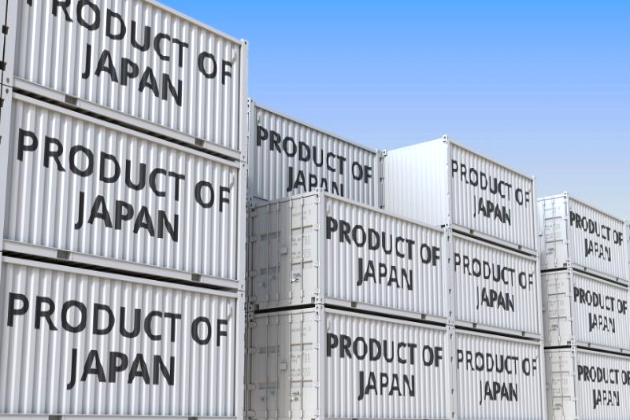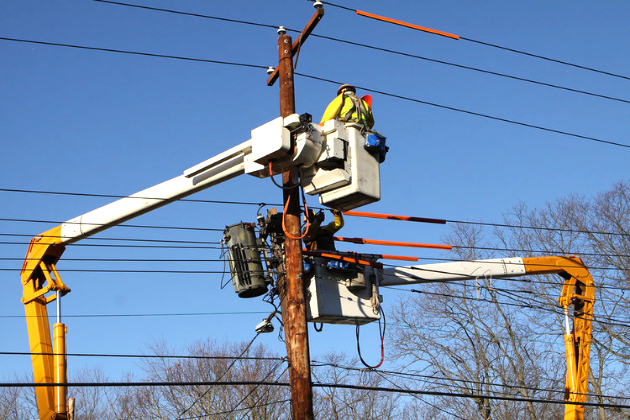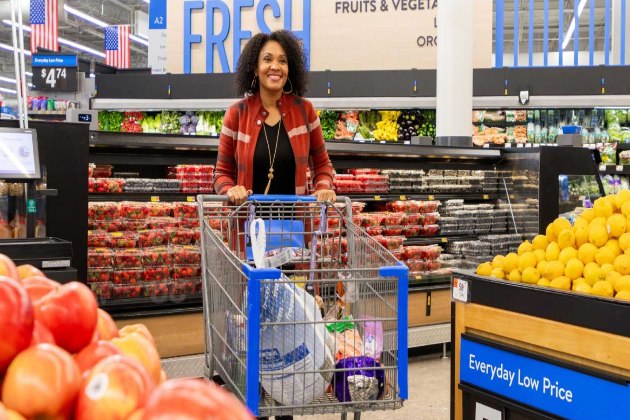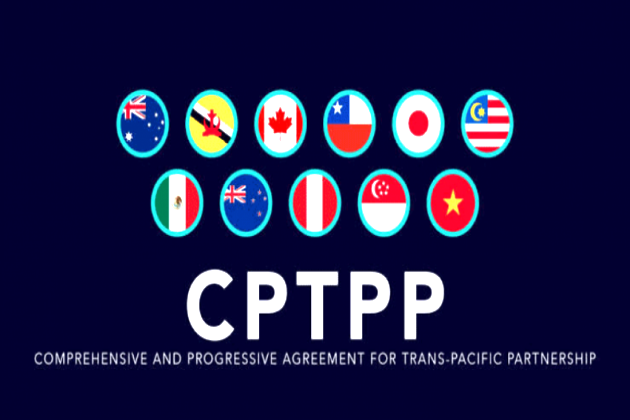Rising prices: why the global drive to keep food cheap is unsustainable
The Conversation
24 Jun 2022, 00:10 GMT+10

As prices rise, everywhere, for pretty much everything, the prospect of the human suffering this will cause is deeply worrying. There are predictions that the number of people in the world experiencing acute hunger - currently 276 million - could soon rise by as many as 47 million.
To address the problem, one thing that many agree on is keeping trade barriers low. This means not banning exports, where individual countries hang on to their supplies, and making sure sanctions don't affect vital food supplies. The fear is that any barriers to global flows of food will simply push prices up even more.
This focus on keeping prices low is understandable and necessary. But it is also worrying, because the economic mechanisms which have driven down prices in recent decades have severely weakened the global food system.
This was brought home to me on a recent visit to Kenya. Eating fish one evening on the banks of Lake Victoria, one of the world's largest inland fisheries, I asked my Kenyan colleagues where my tilapia would have come from. The surprising answer was that it was quite possibly from China.
But under the cheap food paradigm, this makes sense. China has done a phenomenal job of growing its aquaculture industry (it now commands around 60% of the global market) while also investing in African transport infrastructure.
Extremely efficient production and distribution have lowered costs, enabling local vendors in Kenya to earn a living selling imported tilapia at prices their customers can afford.
It's this kind of dynamic that the globalisation of food has allowed. But when globalised trade is disrupted, the whole system is threatened.
Until recently, for example, Ukraine supplied 36% of the world's sunflower oil. The Russian invasion has massively reduced trade from Ukraine, making this staple ingredient considerably more expensive for the millions of households and companies around the world that use it.
Many African countries depend on Ukraine and Russia for more than half of their wheat. Supply shortages created by the war, along with catastrophically high fertiliser prices, are threatening to increase hunger in the region.
This is the flip side of global efforts to keep food prices low. On the one hand, increased productivity and competitiveness have enabled food to be produced more cheaply and distributed to the people who need it. But the relentless drive to increase efficiency and gain competitive advantage has created risks for the resilience of the food system.
It has meant that a smaller number of countries and companies now dominate, detracting from the diversity in food sources and supply chains which is needed to build strength and reliability. As a UN report into food insecurity states, diversity matters because it "creates multiple pathways for absorbing shocks". Those shocks can be catastrophic.
It's little wonder then that many countries are re-evaluating their dependency on imported food to feed their people.
Protecting the planet
The single-minded focus on keeping food prices low also distracts from other issues, such as the environment and supporting sustainable livelihoods.
As the UN secretary general, Antonio Guterres, has pointed out:
It is unlikely that the fish I ate in Kisumu was produced in a way that took many of these concerns into account. But the cheapness of food incurs large costs elsewhere - for people's health, their livelihoods and for the whole planet.
These "hidden costs" have been estimated at almost US$20 trillion (Pound 16.3 trillion) per year. Put simply, the prices we pay for food today do not reflect the true cost of producing it - and such a system is unsustainable.
There is no question that food must be allowed to flow across borders in large enough quantities to prevent hunger. But there is also no doubt that future generations will need to be able to rely on a more sustainable global food system - one that incorporates prices, diets, environment, livelihoods and resilience.
It is incumbent on any battle against hunger to consider not just how to keep food cheap in the short term, but to ensure over the longer term that food systems are redesigned so they are stronger and more sustainable. This would involve substantial changes, but there are already signs of shifts in the workings of the global economy.
One prominent investor recently commented that the Russian invasion of Ukraine has "put an end to globalisation as we know we it," predicting a process of "deglobalisation" and companies re-calibrating their global supply chains.
This presents an opportunity to use the latest research to work out which economic models are needed to transform the planet's food systems. This should involve "true cost" accounting, which properly reflects the various costs and benefits of producing, transporting and selling what we eat.
There is also room for significant steps to be taken towards a food system which incorporates the circular economy (with more emphasis on sharing, reusing and recycling) and the "bioeconomy" model, with its focus on conserving biological resources.
Politicians, businesses and consumers need to accept that low food prices are part of a bigger problem. Focusing solely on keeping food as cheap as possible, and an unrelenting drive for productivity and profit, is not the way to keep the world well nourished.
Things need to change. And the fact that now is the hardest time to confront this problem is precisely why we should.
Author: Corinna Hawkes - Professor of Food Policy, City, University of London 
 Share
Share
 Tweet
Tweet
 Share
Share
 Flip
Flip
 Email
Email
Watch latest videos
Subscribe and Follow
Get a daily dose of China National News news through our daily email, its complimentary and keeps you fully up to date with world and business news as well.
News RELEASES
Publish news of your business, community or sports group, personnel appointments, major event and more by submitting a news release to China National News.
More InformationBusiness
SectionWall Street falters as America's credit rating is downgraded
NEW YORK, New York - U.S. stocks struggled on Monday as a further downgrading of U.S. debt by Moody's sent the dollar sliding and Treasury...
Richemont sales up 7% on strong jewelry demand
PARIS, France: Richemont, the owner of luxury brands Cartier and Van Cleef & Arpels, posted a stronger-than-expected seven percent...
Japan’s economy shrinks, first contraction in a year
TOKYO, Japan: Japan's economy contracted for the first time in a year, shrinking at a faster pace than expected in the first quarter...
Summer could strain power supply in US, Canada, grid operator warns
WASHINGTON, D.C.: Parts of the U.S. and Canada may not have enough electricity this summer if hot weather causes more people to use...
Amid retail slowdown, Dick’s Sporting to acquire Foot Locker
CORAOPOLIS, Pennsylvania: Dick's Sporting Goods is set to acquire Foot Locker in a US$2.4 billion deal, marking the second major footwear...
Walmart warns shoppers of price hikes amid rising tariffs
BENTONVILLE, Arkansas: Walmart shoppers are bracing for price hikes as the world's largest retailer prepares to pass on the impact...
Asia Pacific
SectionJapan’s economy shrinks, first contraction in a year
TOKYO, Japan: Japan's economy contracted for the first time in a year, shrinking at a faster pace than expected in the first quarter...
Sweden backs EU entry into Pacific trade bloc
STOCKHOLM, Sweden: Sweden plans to propose that the European Union join the Pacific Rim trading bloc, the CPTPP, aiming to create the...
China's passenger car sales rise for third straight month in April
SHENZHEN, China: China's passenger car sales climbed for the third consecutive month in April, increasing 14.8 percent from a year...
Virat's fitness doesn't indicate that this was time, Rohit should have played: Joginder Sharma on Test stalwarts' retirement
By Vivek Prabhakar Singh Diu (Daman and Diu) [India], May 20 (ANI): Former India cricketer and 2007 T20 World Cup hero Joginder...
China to launch world's first drone 'mother ship' (VIDEO)
The Jiu Tian has been designed to deploy up to 100 AI-guided UAVs during high-altitude missions ...
China to launch worlds first drone mother ship
The Jiu Tian has been designed to deploy up to 100 AI-guided UAVs during high-altitude missions China is preparing to launch what...












